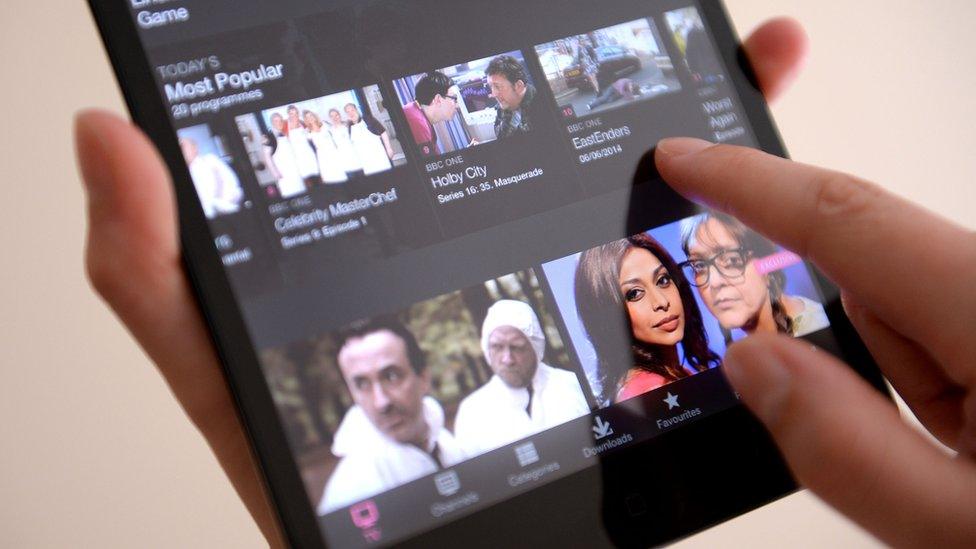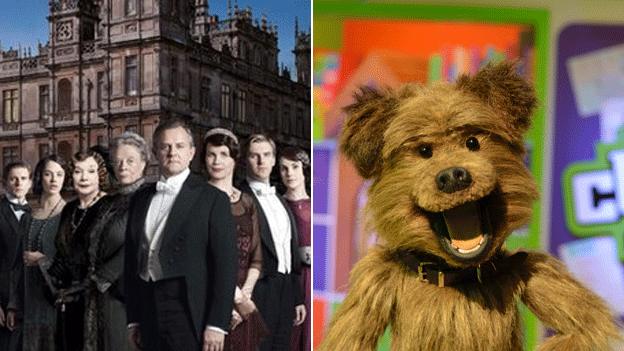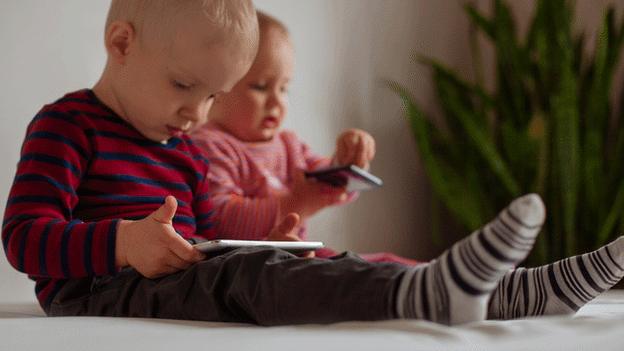Under 25s TV viewing falls by quarter
- Published

Young people are watching far less TV on televisions and instead are using mobile devices
People under 25 are watching just over a quarter less broadcast TV than in 2010, an Ofcom review into public service broadcasting (PSB) has found.
Viewing fell by 27% among 16-24 year olds and children, while it fell only 5% in the 55-64 age category in the same time period.
Ofcom said its report highlighted "a widening gap between the viewing habits of the youngest and oldest audiences".
Those aged between 16 and 24 have embraced on-demand services instead.
The report found a third of all TV viewing among 16-24 year olds is via paid for or free on-demand services.
Live TV accounts for 36% of daily viewing in this age group, which is a 14 percentage-point decrease in two years.
The report found that overall TV viewing has fallen in recent years, with viewers now watching 26 minutes less a day than in 2010.
The average person watched three hours and 36 minutes of TV per day in 2015.
But PSBs still account for more than half of broadcast TV viewing.
The report found that around three in four viewers were satisfied with programmes on these channels.
Spending rise for drama
Ofcom also looked into funding and found increases in spending on factual TV and drama but a continued decrease in spending on children's programmes, the arts, classical music and religion.
The main five public service broadcasters, which are made up of BBC One, BBC Two, ITV, Channel 4 and Channel 5, spent £2.50bn on new UK programmes on their public service channels in 2015, a 2% increase since 2013.
The channels spent the most money on new UK factual programmes, with spending up by 8% - to £522m - between 2014 and 2015.
Spending on original UK drama also rose year on year - it went up 12% to £311m.
There was also more drama screened last year - a total of 416 hours, up from 371 hours.

Poldark, starring Aidan Turner, was a big hit for the BBC in 2015
Spending on children's TV fell 13% from 2014 to £77m.
The hours of original UK children's programmes fell from 672 in 2014 to 580 last year. This was the first time fewer than 600 hours of original UK children's programmes have been broadcast since 1998.
Spending on new UK arts and classical music programmes dropped 14% to £36m.
Religious programming budgets fell by 6% to £12m and money spent on original UK comedy decreased by 4% to £99m.
Jane Rumble from Ofcom said their research showed that UK audiences still watch and value public service broadcasting.
"But there are significant differences in the viewing habits of older and younger audiences.
"As media and technology continue to evolve, it is important that broadcasters respond to these changes, so they can keep meeting the needs and expectations of viewers."
Follow us on Twitter @BBCNewsEnts, external, on Instagram, external, or email entertainment.news@bbc.co.uk, external.
- Published2 July 2015

- Published28 August 2015

- Published26 January 2016

- Published27 March 2015
